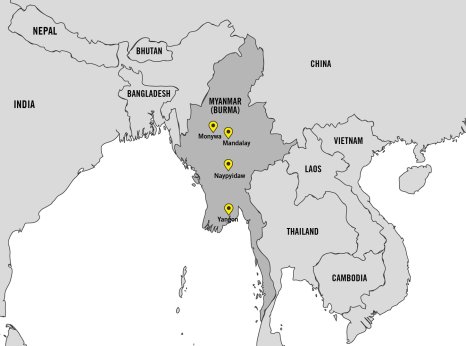Myanmar: Grave Concerns For Tortured Ex-Politician

Linn Htut was serving his second term as the appointed Chief Minister of Shan State from the National League for Democracy (NLD) Party at the time of his arrest on 1 February 2021 at the Governor’s Residence in Taunggyi in Shan State. He was reportedly not presented with an arrest warrant nor the reason for his arrest and was brought to a military compound. The following day, he was returned to his residence and placed under house arrest – along with his family - for a week. On 10 February 2021, he was again forcibly taken away by the military to a secret detention centre in Taunggyi, the capital of Shan State, where he was held incommunicado until July 2021.
According to the UN Working Group on Arbitrary Detention, Linn Htut is a “well-respected leader who engaged in community development, led aid campaigns and raised funds for charities.”
The Working Group further noted that according to its source, Linn Htut was tortured and otherwise ill-treated in May 2021, during which a Shan State military officer reportedly told him that he would be released from detention if he agreed to support and join the military regime, which he refused. He was then reportedly tortured to extract a false confession of corruption and was subjected to sleep deprivation for two weeks and to continuous hours of interrogations without any legal representation or breaks.
In July 2021, he was transferred to Nyaung Shwe State Prison where he was held in solitary confinement and allegedly prevented from speaking with other political prisoners. His cell was also reported to be infested by rats and ants.
In August 2021, Linn Htut’s trial began in a temporary courthouse next to the state prison, in proceedings inaccessible to his family and the media. During his day-long trial sessions went he went without food or water, and he was interrogated at night. Between January and November 2022, at least two courts sentenced Linn Htut to a total of 20 years in prison with hard labour, over trumped-up charges of corruption, electoral fraud and engaging in campaigning.
In December 2022, he was transferred to Bago Region’s notorious Tharyarwaddy Prison, where he is currently being held to serve his sentence. Linn Htut has multiple health concerns, including arrhythmia, diabetes and hypertension, as well as bouts of diarrhoea and Achilles’ tendon pain, for which he reportedly did not received adequate medical treatment. Since his arrest, he has only been allowed one 15-minute family visit at Tharyarwaddy Prison.
In September 2024, the UN High Commissioner for Human Rights published a report on the human rights situation in Myanmar since the February 2021 military coup. The report highlighted, among others, that at least 27,400 individuals have been arrested, and at least 1,853 people – including 88 children and 125 women – have died in custody after being subjected to abusive interrogation, other ill-treatment in detention, or denial of access to adequate healthcare. The report also emphasised the “pervasive” torture and other ill-treatment in military custody, including detainees “being suspended from the ceiling without food or water; being forced to kneel or crawl on hard or sharp objects; use of snakes and insects to instill fear; beatings… cutting of body parts and pulling of fingernails,” among other brutal methods, as well as reports of sexual violence.
In July 2025, the ASEAN Parliamentarians for Human Rights called on regional leaders to prioritise the immediate release of political prisoners in Myanmar, stating that their continued detention is “a stain on our regional conscience.” A 2024 report by the Political Prisoners Network-Myanmar said at least 31 political prisoners in the military junta’s prisons died in the same year due to poor healthcare and inhumane treatment. The group also said that following the 7.7-magnitude earthquake that hit Myanmar on 28 March 2025, at least 70 prisoners – 49 of whom were political prisoners – died at Obo Prison in Mandalay Region.
The overall situation in Myanmar remains dire, with civilian deaths reaching 7,000 and as unlawful military air strikes continue, killing civilians in classrooms, at weddings, in shelters and even during the aftermath of the earthquake.